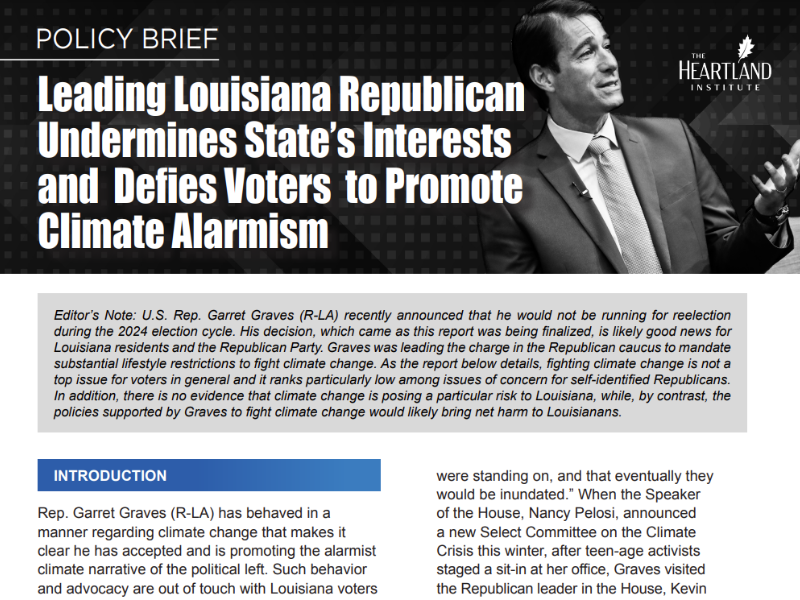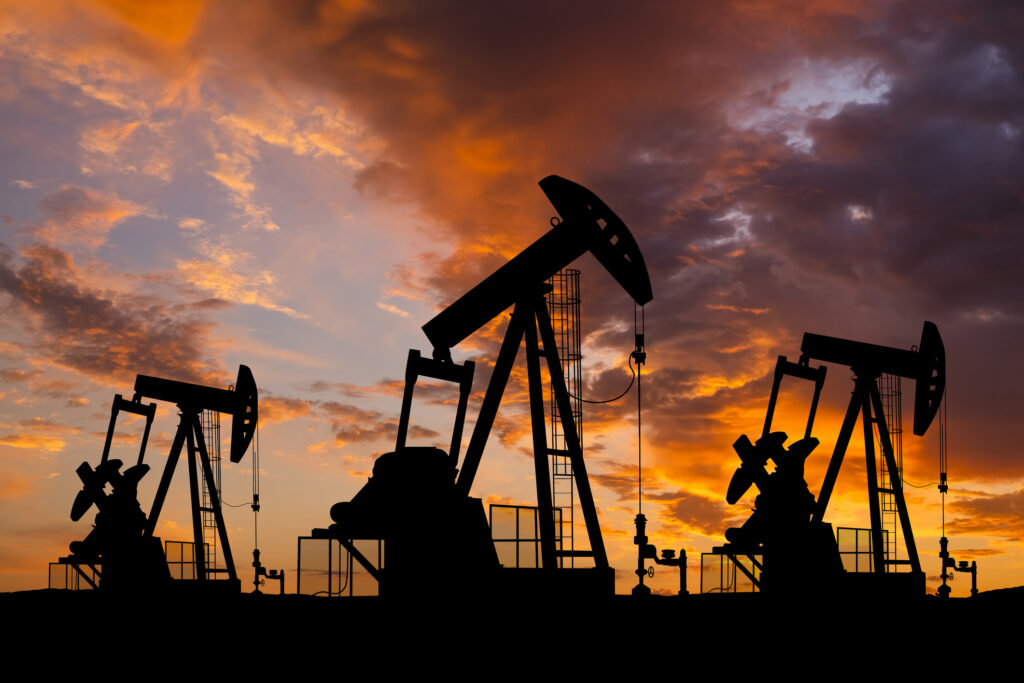A proposal in the Oregon House of Representatives would ban the process of hydraulic fracturing (“fracking”) for oil and gas development in the Beaver State over a 10-year period, from 2020 to 2030.
Fracking is the process of extracting natural gas and oil situated several miles beneath the Earth’s surface. Over the past decade, fracking has increased the output of these two vital energy sources by 40 percent and 85 percent, respectively. Furthermore, the fracking industry supports nearly three million U.S. jobs. Because of fracking, energy prices have dropped dramatically. Consequently, consumers who use natural gas or oil for their homes, businesses, cars, and boats have saved billions. Even more, fracking has spurred massive economic growth.
Although there are currently no fracking operations in Oregon, this ban would be economically short-sighted, as there is the potential for coalbed methane extraction in the Willamette Valley. In 2015, the oil and natural gas industries supported more than 57,000 jobs in Oregon—2.4 percent of the state’s total. These vital industries produced more than $2.8 billion in labor income and accounted for $5.3 billion in economic impact, according to a 2017 American Petroleum Institute study prepared by PricewaterhouseCoopers.
Unfortunately, fracking has been maligned by numerous false claims spouted by opponents of the process, including that the process pollutes the air and water. However, despite fear-mongering to the contrary, there is no evidence that seepage of fracking fluids, oil, or natural gas from fracking wells contaminate water sources. A plethora of scientific research, including more than two-dozen peer reviewed studies and analyses released since 2010 and a six-year Environmental Protection Agency (EPA) study released in 2016, have determined the fracking process is not a systemic threat to groundwater sources.
Studies from across the country also reveal air pollution near fracking operations typically poses no danger to human health. Moreover, EPA reports the decades-long decline in the nation’s air pollution has continued unabated since fracking became more widespread over the past decade. Further, as fracking operations have increased substantially across the United States, the prevalence of asthma, birth defects, and cancer have decreased. Additionally, the incidence of these health problems in major fracking states, such as Pennsylvania and Texas, is lower than in several states that do not contain significant fracking operations. Also, numerous studies demonstrate there is no evidence that the miniscule amounts of chemicals present in fracking fluids cause cancer.
Federal, state, and local governments have tested thousands of sites for hydraulic fracturing pollution of groundwater and drinking water resources over the past decade. In light of the immense number of studies showing fracking is safe and that it provides substantial economic benefits, Oregon lawmakers should not seek to ban the practice, place a moratorium on it, or place onerous regulations on drilling activity. It is not meant to suggest there are zero risks associated with fracking or other drilling operations. However, those risks are quite small compared to the enormous economic benefits fracking could bring to Oregon.
The following documents provide more information about hydraulic fracturing and fossil fuels.
Debunking Four Persistent Myths about Hydraulic Fracturing
https://heartland.org/publications-resources/publications/debunking-four-persistent-myths-about-hydraulic-fracturing
This Heartland Institute Policy Brief by Policy Analyst Timothy Benson and Linnea Lueken, a former Heartland communications intern, outlines the basic elements of the fracking process and then refutes the four most widespread fracking myths, providing lawmakers and the public with the research and data they need to make informed decisions about hydraulic fracturing.
The Local Economic and Welfare Consequences of Hydraulic Fracturing
https://heartland.org/publications-resources/publications/the-local-economic-and-welfare-consequences-of-hydraulic-fracturing
This comprehensive study published by the National Bureau of Economic Research says fracking brings, on average, $1,300 to $1,900 in annual benefits to local households, including a 7 percent increase in average income, a 10 percent increase in employment, and a 6 percent increase in housing prices.
Climate Change Reconsidered II: Fossil Fuels – Summary for Policymakers
https://heartland.org/publications-resources/publications/climate-change-reconsidered-ii-fossil-fuels—summary-for-policymakers
In this fifth volume of the Climate Change Reconsidered series, 117 scientists, economists, and other experts assess the costs and benefits of the use of fossil fuels1 by reviewing scientific and economic literature on organic chemistry, climate science, public health, economic history, human security, and theoretical studies based on integrated assessment models (IAMs) and cost-benefit analysis (CBA).
The Social Benefits of Fossil Fuels
https://heartland.org/publications-resources/publications/the-social-benefits-of-fossil-fuels
This Heartland Policy Brief by Joseph Bast and Peter Ferrara documents the many benefits from the historic and still ongoing use of fossil fuels. Fossil fuels are lifting billions of people out of poverty, reducing all the negative effects of poverty on human health, and vastly improving human well-being and safety by powering labor-saving and life-protecting technologies, such as air conditioning, modern medicine, and cars and trucks. They are dramatically increasing the quantity of food humans produce and improving the reliability of the food supply, directly benefiting human health. Further, fossil fuel emissions are possibly contributing to a “Greening of the Earth,” benefiting all the plants and wildlife on the planet.
Impacts of the Natural Gas and Oil Industry on the U.S. Economy in 2015
https://heartland.org/publications-resources/publications/impacts-of-the-natural-gas-and-oil-industry-on-the-us-economy-in-2015
This study, conducted by PricewaterhouseCoopers and commissioned by the American Petroleum Institute, shows that the natural gas and oil industry supported 10.3 million U.S. jobs in 2015. According to the Bureau of Labor Statistics, the average wage paid by the natural gas and oil industry, excluding retail station jobs, was $101,181 in 2016, which is nearly 90 percent more than the national average. The study also shows the natural gas and oil industry has had widespread impacts in each of the 50 states.
What If … America’s Energy Renaissance Never Happened?
https://heartland.org/publications-resources/publications/what-ifamericas-energy-renaissance-never-actually-happened
This report by the U.S. Chamber of Commerce’s Institute for 21st Century Energy examines the impact the development of shale oil and gas has had on the United States. The report’s authors found that without the fracking-related “energy renaissance,” 4.3 million jobs in the United States may not have ever been created and $548 billion in annual GDP would have been lost since 2009. The report also found electricity prices would be 31 percent higher and gasoline prices 43 percent higher.
What If … Hydraulic Fracturing Was Banned?
https://heartland.org/publications-resources/publications/what-if-hydraulic-fracturing-was-banned
This study is the fourth in a series of studies produced by the U.S. Chamber of Commerce’s Institute for 21st Century Energy. It examines what a nationwide ban on hydraulic fracturing would entail. The report’s authors found by 2022, a ban would cause 14.8 million jobs to “evaporate,” almost double gasoline and electricity prices, and increase natural gas prices by 400 percent. Moreover, cost of living expenses would increase by nearly $4,000 per family, household incomes would be reduced by $873 billion, and GDP would be reduced by $1.6 trillion.
Nothing in this Research & Commentary is intended to influence the passage of legislation, and it does not necessarily represent the views of The Heartland Institute. For further information on this subject, visit Environment & Climate News, The Heartland Institute’s website, and PolicyBot, Heartland’s free online research database.
The Heartland Institute can send an expert to your state to testify or brief your caucus; host an event in your state; or send you further information on a topic. Please don’t hesitate to contact us if we can be of assistance! If you have any questions or comments, contact Lindsey Stroud, a state government relations manager at The Heartland Institute, at [email protected] or 312/377-4000.




